Farm organisations must lead from the front with Brexit policy, not come from behind with press releases that lament the outcome.
We are just days away from what has the potential to be one of the biggest financial shocks ever to hit farmers and rural Ireland – Brexit. With or without a deal, the consequences on farm incomes will be severe.
As outlined in our detailed Brexit analysis this week, the economic impact could total €1.7bn per annum in the event of the EU and UK failing to reach a deal. To put this into context, this is in line with the level of support farmers receive each year through the CAP.
It is unfortunate that as the clock ticks down and negotiations between the EU and UK become even more fraught, farm politics is focused on the localised issues of TB and a PGI application. In normal times, both would be legitimate issues for debate – but we are not in normal times.
In Brexit, Irish farming is facing one of the biggest battles it has ever confronted. It is bigger than any one farm organisation and more important than any national issue. Farmers have never had a greater need for their farm organisations to ensure their voice is heard loud and clear – within Government and in Brussels. To ensure this is delivered, they should come together with a common purpose. Looking beyond the current political posturing, the outcome of the negotiations will fall under one of three broad headings:
Comprehensive free-trade agreement. Basic free-trade agreement.No-deal tariff regime.While still coming at a significant cost, a comprehensive free-trade agreement is by far the preferred outcome. It removes tariffs and aligns UK production standards to those of the EU. However, it is this last point that makes it an unlikely outcome given the UK’s goal of establishing trade agreements with other countries independently of the EU.
Striking a basic free-trade agreement would provide the UK such flexibility while at the same time removing tariffs and quotas. It is widely believed that this is the landing zone towards which both sides are working.
However, a basic free-trade agreement will not prevent value destruction in the British market. As Phelim O’Neill reports, subsequent trade deals with Australia and New Zealand will quickly see prices in the British market become closely aligned to world market prices. Dairy and pigmeat could compete but at €3/kg, 50% of Irish beef exports would no longer have an economically viable market.
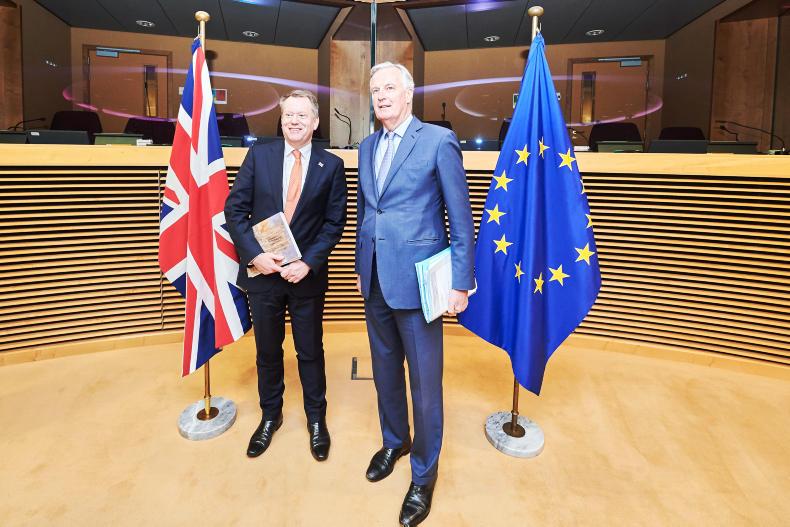
UK chief negotiator David Frost (left) with his EU counterpart Michel Barnier.
Of course, we cannot rule out a no-deal scenario. This would see WTO tariffs introduced at a cost of €1.7bn per annum to Irish farmers. Some see a tariff rate quota as a possible solution but this could not be ringfenced for Ireland or the EU. It would have to be applied to imports from all countries. Irish and EU product would still have to jump a high-cost tariff wall just to get into what would be a heavily devalued British market.
So far, the response of farmers has failed to reflect the scale of the threat. In the days and weeks ahead, farm organisations must lead from the front through the development of solid policy that is solution-focused and clear in its demands.
Support required
The easy option is to look for direct supports. Given the unique exposure of Irish farmers and our beef sector to Brexit, a strong case should be made for preferential access to the €5bn EU Brexit fund. But we need to look deeper and explore how we can maintain a presence in the marketplace.
The concept of a tariff equalisation mechanism that would offset UK tariffs through an EU fund should be explored. Similarly, export refunds that would allow Irish beef compete in non-EU markets with South American product, supported by weak domestic currencies, needs to be given serious consideration.
Support should also be sought from farming groups across the EU for exceptional market management measures to be triggered in response to Brexit. In the context of 250,000 tonnes of Irish beef being displaced on to the continental market, a ban on all beef imports into the EU should be implemented. In recent years we have seen controls on EU imports of rice at the request of the Italians. More recently in the face of the pandemic, import restrictions on steel were imposed to protect EU production. Alongside an import ban, all pending trade agreements with Australia, New Zealand and Mercosur should be suspended.
The initial response from Brussels will be to hide behind regulations. However, we saw the extent to which regulations can quickly be amended in response to COVID-19. For Ireland and particularly Irish farmers, the economic impact of COVID-19 will be much less than the long-term consequences of a no-deal Brexit or even a basic free-trade agreement.
Yes, we have lost ground, but the symbolism of each of our farm leaders going in front of Government together with a common purpose and a clear set of demands would be hugely powerful. Those still hoping for a “good” Brexit outcome fail to understand how the single market, in which Britain will no longer be part, functioned and the benefits it delivered.
There is no such thing as a good Brexit; it is merely a case of damage limitation – and we must ensure farm incomes are protected.
European Commission: McGuinness a deserving commissioner
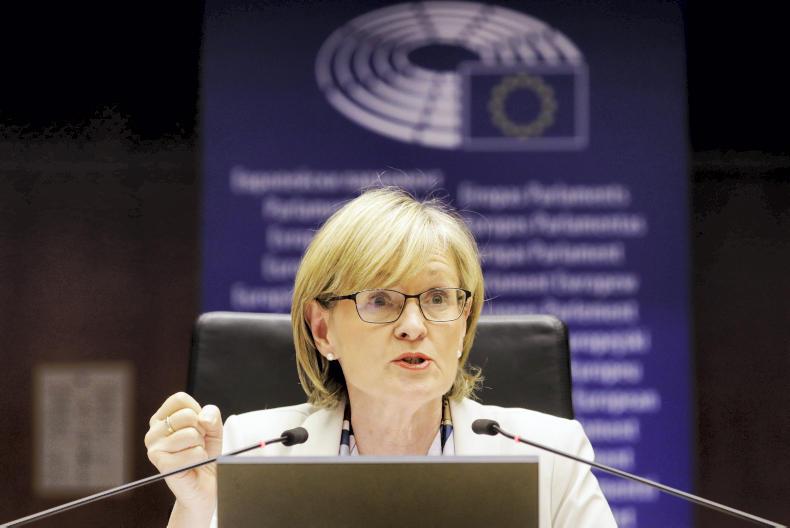
Mairead McGuinness \ Thierry ROGE EP
Ireland is hugely fortunate to have someone of the capacity of Mairead McGuinness to take on the commissioner role after the resignation of Phil Hogan. Since first being elected to the European Parliament in 2004, McGuinness has proved herself to be a highly skilled politician with an excellent ability to understand and communicate what are often complex and sensitive issues.
It is undoubtedly a blow for Ireland to have lost the influential trade portfolio and time will tell of the true cost, but farmers will be expecting McGuinness – with a deep understanding of the sector – to make sure agricultural issues are kept centre stage within the college of commissioners.
Coming from a farm within a border county, she will also bring a unique understanding as to the impact of Brexit on the Irish economy – and in particular on farm incomes. We wish her every success in the new role.
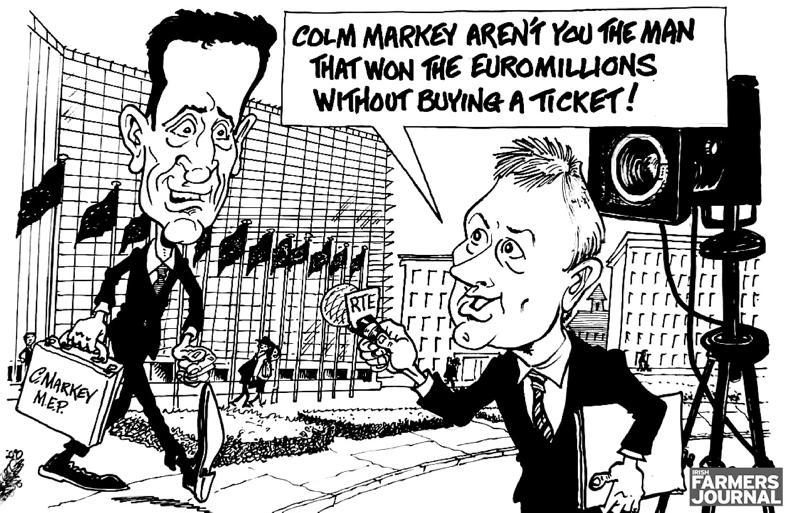
\ Jim Cogan
Tillage: learning from the French harvest lesson
A large part of the difficulties with this year’s harvest was caused by the enforced move to later sowing because of the removal of effective cereal seed dressings used to control aphids. Aphids are the main cause of barley yellow dwarf virus, which can cause severe loss of yield, not only in early sown cereals but also in sugar beet.
Also this week, we cover how the French have moved to take advantage of the flexibility in the EU regulations allowing banned plant protection products to continue to be used if there is no realistic alternative available. The French have invoked the measure to protect their sugar beet industry.
The Department of Agriculture must follow the French lead to safeguard Irish cereal production. Later sowing in an Irish climate usually means poorer ground conditions, compaction and greater susceptibility to winter flooding and spring drought. We had them all this year.
COVID-19: pausing testing in meat processors
After a national screening of primary and secondary meat processors, the levels of COVID-19 in the industry has been shown to be negligible.
Of the 12,700 test results received, just 33 workers – or 0.26% – tested positive. With the rise in demand for community testing, it makes sense to pause the testing regime in meat processors to ensure the capacity exists to facilitate those identified by doctors as showing symptoms or at high risk.
Farm organisations must lead from the front with Brexit policy, not come from behind with press releases that lament the outcome.
We are just days away from what has the potential to be one of the biggest financial shocks ever to hit farmers and rural Ireland – Brexit. With or without a deal, the consequences on farm incomes will be severe.
As outlined in our detailed Brexit analysis this week, the economic impact could total €1.7bn per annum in the event of the EU and UK failing to reach a deal. To put this into context, this is in line with the level of support farmers receive each year through the CAP.
It is unfortunate that as the clock ticks down and negotiations between the EU and UK become even more fraught, farm politics is focused on the localised issues of TB and a PGI application. In normal times, both would be legitimate issues for debate – but we are not in normal times.
In Brexit, Irish farming is facing one of the biggest battles it has ever confronted. It is bigger than any one farm organisation and more important than any national issue. Farmers have never had a greater need for their farm organisations to ensure their voice is heard loud and clear – within Government and in Brussels. To ensure this is delivered, they should come together with a common purpose. Looking beyond the current political posturing, the outcome of the negotiations will fall under one of three broad headings:
Comprehensive free-trade agreement. Basic free-trade agreement.No-deal tariff regime.While still coming at a significant cost, a comprehensive free-trade agreement is by far the preferred outcome. It removes tariffs and aligns UK production standards to those of the EU. However, it is this last point that makes it an unlikely outcome given the UK’s goal of establishing trade agreements with other countries independently of the EU.
Striking a basic free-trade agreement would provide the UK such flexibility while at the same time removing tariffs and quotas. It is widely believed that this is the landing zone towards which both sides are working.
However, a basic free-trade agreement will not prevent value destruction in the British market. As Phelim O’Neill reports, subsequent trade deals with Australia and New Zealand will quickly see prices in the British market become closely aligned to world market prices. Dairy and pigmeat could compete but at €3/kg, 50% of Irish beef exports would no longer have an economically viable market.

UK chief negotiator David Frost (left) with his EU counterpart Michel Barnier.
Of course, we cannot rule out a no-deal scenario. This would see WTO tariffs introduced at a cost of €1.7bn per annum to Irish farmers. Some see a tariff rate quota as a possible solution but this could not be ringfenced for Ireland or the EU. It would have to be applied to imports from all countries. Irish and EU product would still have to jump a high-cost tariff wall just to get into what would be a heavily devalued British market.
So far, the response of farmers has failed to reflect the scale of the threat. In the days and weeks ahead, farm organisations must lead from the front through the development of solid policy that is solution-focused and clear in its demands.
Support required
The easy option is to look for direct supports. Given the unique exposure of Irish farmers and our beef sector to Brexit, a strong case should be made for preferential access to the €5bn EU Brexit fund. But we need to look deeper and explore how we can maintain a presence in the marketplace.
The concept of a tariff equalisation mechanism that would offset UK tariffs through an EU fund should be explored. Similarly, export refunds that would allow Irish beef compete in non-EU markets with South American product, supported by weak domestic currencies, needs to be given serious consideration.
Support should also be sought from farming groups across the EU for exceptional market management measures to be triggered in response to Brexit. In the context of 250,000 tonnes of Irish beef being displaced on to the continental market, a ban on all beef imports into the EU should be implemented. In recent years we have seen controls on EU imports of rice at the request of the Italians. More recently in the face of the pandemic, import restrictions on steel were imposed to protect EU production. Alongside an import ban, all pending trade agreements with Australia, New Zealand and Mercosur should be suspended.
The initial response from Brussels will be to hide behind regulations. However, we saw the extent to which regulations can quickly be amended in response to COVID-19. For Ireland and particularly Irish farmers, the economic impact of COVID-19 will be much less than the long-term consequences of a no-deal Brexit or even a basic free-trade agreement.
Yes, we have lost ground, but the symbolism of each of our farm leaders going in front of Government together with a common purpose and a clear set of demands would be hugely powerful. Those still hoping for a “good” Brexit outcome fail to understand how the single market, in which Britain will no longer be part, functioned and the benefits it delivered.
There is no such thing as a good Brexit; it is merely a case of damage limitation – and we must ensure farm incomes are protected.
European Commission: McGuinness a deserving commissioner

Mairead McGuinness \ Thierry ROGE EP
Ireland is hugely fortunate to have someone of the capacity of Mairead McGuinness to take on the commissioner role after the resignation of Phil Hogan. Since first being elected to the European Parliament in 2004, McGuinness has proved herself to be a highly skilled politician with an excellent ability to understand and communicate what are often complex and sensitive issues.
It is undoubtedly a blow for Ireland to have lost the influential trade portfolio and time will tell of the true cost, but farmers will be expecting McGuinness – with a deep understanding of the sector – to make sure agricultural issues are kept centre stage within the college of commissioners.
Coming from a farm within a border county, she will also bring a unique understanding as to the impact of Brexit on the Irish economy – and in particular on farm incomes. We wish her every success in the new role.

\ Jim Cogan
Tillage: learning from the French harvest lesson
A large part of the difficulties with this year’s harvest was caused by the enforced move to later sowing because of the removal of effective cereal seed dressings used to control aphids. Aphids are the main cause of barley yellow dwarf virus, which can cause severe loss of yield, not only in early sown cereals but also in sugar beet.
Also this week, we cover how the French have moved to take advantage of the flexibility in the EU regulations allowing banned plant protection products to continue to be used if there is no realistic alternative available. The French have invoked the measure to protect their sugar beet industry.
The Department of Agriculture must follow the French lead to safeguard Irish cereal production. Later sowing in an Irish climate usually means poorer ground conditions, compaction and greater susceptibility to winter flooding and spring drought. We had them all this year.
COVID-19: pausing testing in meat processors
After a national screening of primary and secondary meat processors, the levels of COVID-19 in the industry has been shown to be negligible.
Of the 12,700 test results received, just 33 workers – or 0.26% – tested positive. With the rise in demand for community testing, it makes sense to pause the testing regime in meat processors to ensure the capacity exists to facilitate those identified by doctors as showing symptoms or at high risk.




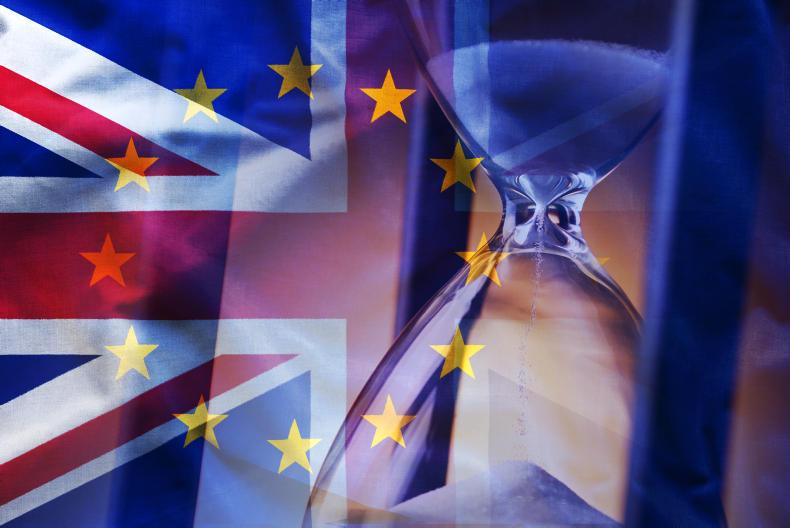




 This is a subscriber-only article
This is a subscriber-only article









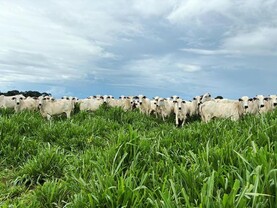
SHARING OPTIONS: